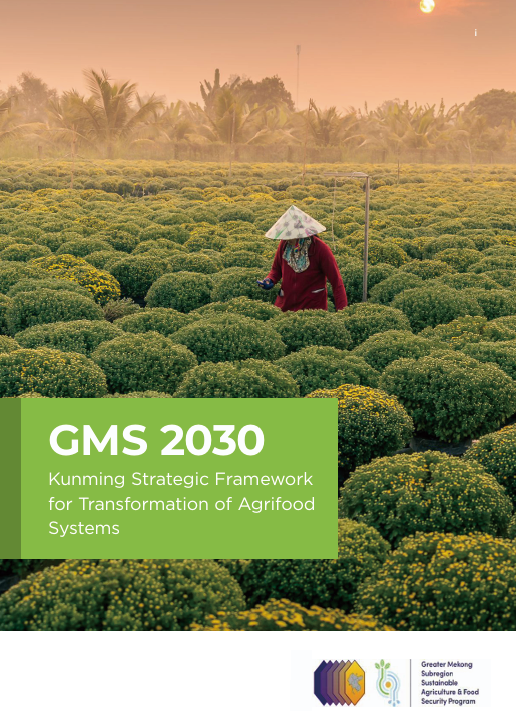GMS-2030 Kunming Strategic Framework for Transformation of Agrifood Systems

The Greater Mekong Subregion (GMS) is characterized by rapid economic growth, rich biodiversity, and a strong reliance on agriculture for livelihoods. Agriculture remains the backbone of the GMS economies, employing a large portion of the population and contributing substantially to the national Gross Domestic Product especially in less industrialized countries. The subregion’s ecosystems, ranging from highland forests to vast river basins, support diverse crops, livestock, and fisheries, making the GMS a key player in both regional and global food markets exporting rice, fruits, vegetables, and seafood.
The GMS-2030 Kunming Strategic Framework for Transformation of Agrifood Systems (GMS 2030 KSFTAS) addresses the evolving needs of the subregion’s agricultural sector, while aligning with broader GMS cooperation initiatives. It outlines a strategy for transforming the agrifood trade as a crucial economic driver through sustainable farming systems, low-carbon and climate resilient value chains, digital technologies, and financing mechanisms to enhance livelihoods, reduce food loss, and meet the rising demand for safe, highquality, and green products. The strategic framework prioritizes inclusive growth by empowering smallholders, women, youth, and disadvantaged groups to access resources and opportunities through three strategic focus areas: (i) Green and Climate-Resilient Agriculture; (ii) Safe and Quality Agrifood Systems; (iii) Food Diversification and Value Chain Optimization.
The Framework is designed in alignment with several key regional strategies, including the GMS Economic Cooperation Program Strategic Framework 2030, GMS Innovation Strategy for Development 2030, and the GMS Gender Strategy.
The GMS 2030 KSFTAS was endorsed at the 3rd GMS Agriculture Ministers’ Meeting, held on 19–22 November 2024 in Kunming, PRC.
Download
| Attachment | Size |
|---|---|
| 5.49 MB |
Last Updated: Wednesday, 7 May 2025
